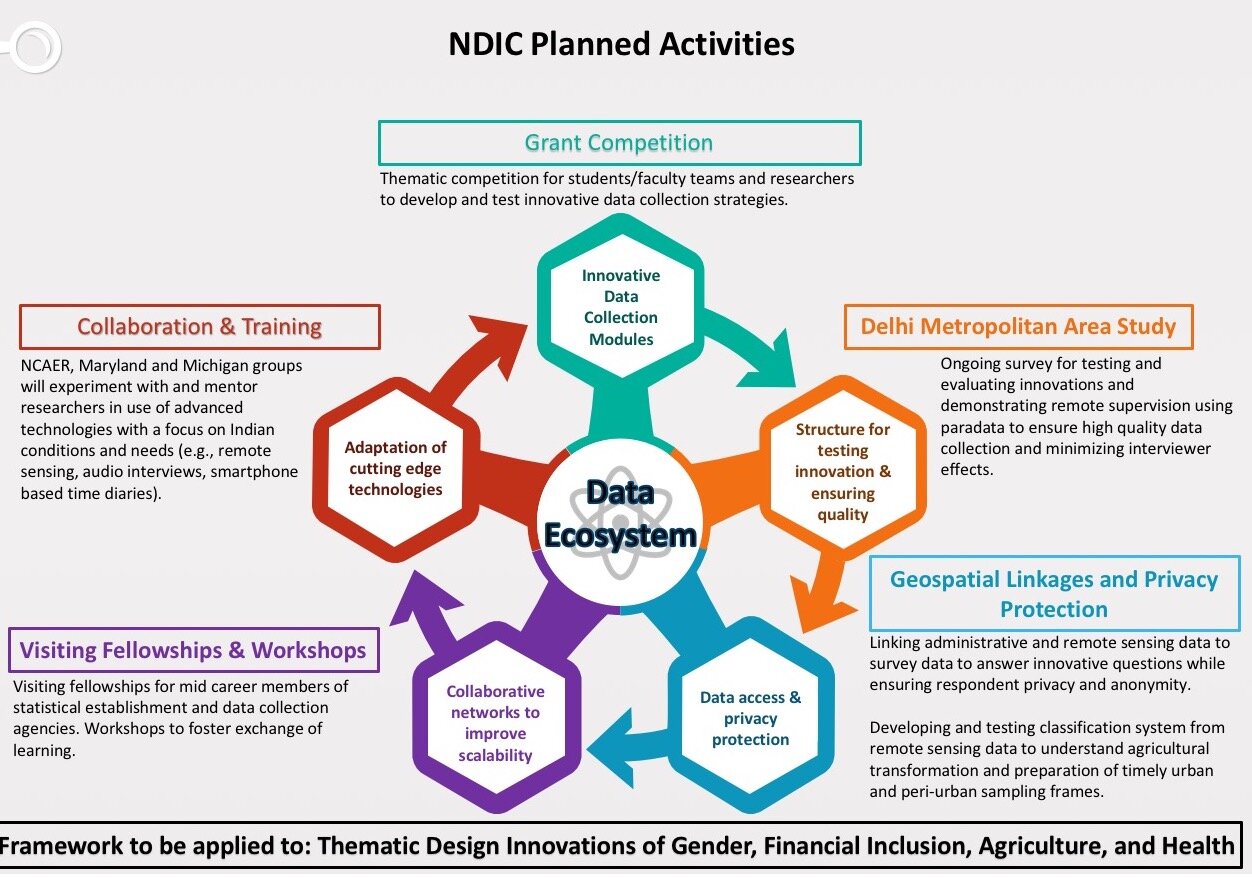
NCAER National data Innovation Centre
National Council of Applied Economic Research, New Delhi, where I hold joint appointment, has recently set up a new National Data Innovation Centre (NDIC) with its consortium partners University of Maryland and University of Michigan. The main objective of NCAER NDIC is to serve as a laboratory for experiments in data collection, interfacing with partners in think tanks, Indian and international universities, and government. Initial funding for NDIC is provided by Bill & Melinda Gates Foundation. I serve as its founding director and Santanu Pramanik serves as its deputy director.
India’s rapid transformation in data-oriented research has led to a growing demand from researchers and policymakers for rapid, high-quality and policy-relevant data. Changing socio-economic conditions also necessitate rethinking of the kind of data that are collected, as also ways in which they are collated and made accessible to users. In this context, NDIC is being visualised as a national centre of innovation and excellence in data collection that will build research capacity to strengthen India’s data ecosystem to meet the 21st Century challenges. NDIC forms an important core of NCAER’s long-standing data collection activities.
The main objective of NCAER-NDIC is to serve as a laboratory for experiments in data collection, interfacing with partners in think tanks, Indian and international universities, and government. In particular, the Centre will address problems with existing data streams and important data currently not collected; foster, incubate, mainstream, and increase uptake of data innovations; and improve the triangulation and compatibility of distinct but related datasets. It will also: (1) promote innovative data and quality assurance modules using new data collection methods and technologies, initially in the areas of gender empowerment, financial inclusion, health and agriculture; (2) build connections with diverse stakeholders, including data researchers, and data professionals located within government national data agencies; and (3) enhance skills through formal and informal training and through the building of a broader collaborative network. '
Delhi NCR Coronavirus Telephone Survey (DCVTS)
NCAER NDIC has conducted four Rounds of its Delhi National Capital Region Coronavirus Telephone Survey (DCVTS). These rapid response telephonic surveys in the Delhi NCR region assess:
people’s knowledge of the Coronavirus
people’s attitudes and perceptions towards the risk of a Coronavirus infection
people’s knowledge of preventive and control measures, especially social distancing, and the feasibility of adhering to them
the impact of the Coronavirus pandemic on people’s livelihoods, income, social life, and access to essential items
access of children ages 6-14 to blended learning during the lockdown
willingness of our respondents to get vaccinated
DCVTS Round 1 Press ReleaseDCVTS Round 1 PresentationDCVTS Round 2 Press ReleaseDCVTS Round 2 PresentationDesai, Sonalde, Neerad Deshmukh and Santanu Pramanik. 2020. “Precarity in a time of uncertainty: Gendered Employment Patterns during Lockdown in India.” Forthcoming. Feminist Economics. Online Appendix.
